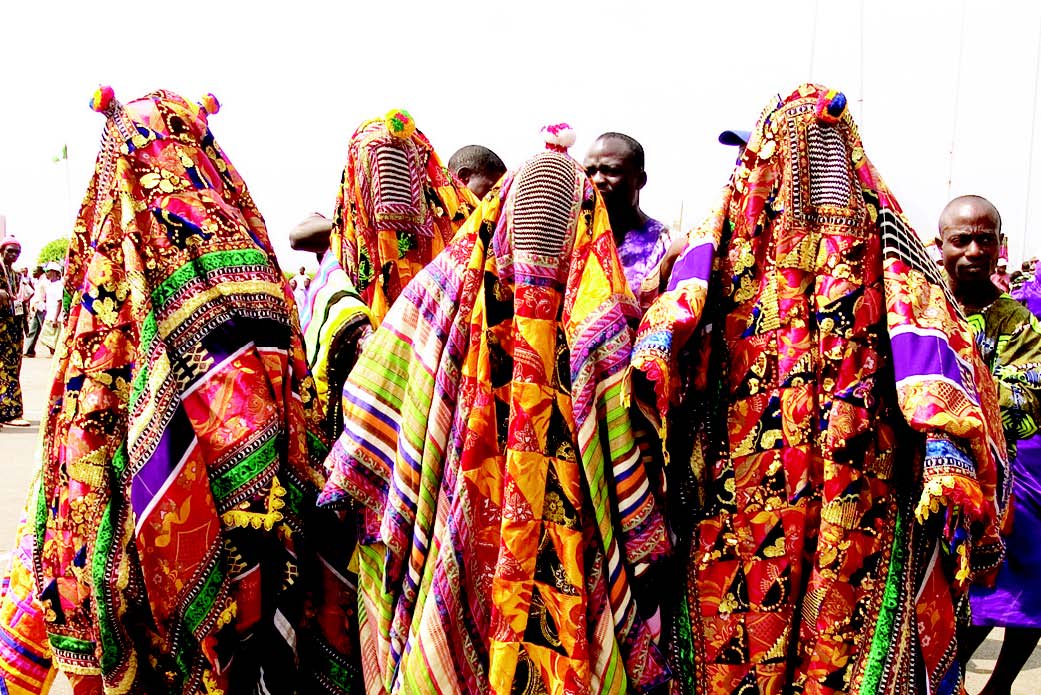Death is an unfortunate and inevitable life event that is universally met with the same sentiments — pain, sorrow, shock, disbelief and eventually grief. The series of emotions experienced vary by individual, but what is almost always certain is grief. Grieving is the process of feeling intense sorrow about a loss or being in mourning. Although there is no standard way of grieving or officially accepted method to it, in some African cultures there were specific practices that were strictly upheld during mourning.
In most African societies, community and communal living were a major emphasis. People believed that they were one, and supported and cared for each-other as one big family. Therefore, it was not uncommon that something as dire as death was not only publicly acknowledged but also marked officially with certain practices so that the rest of the community could also openly support the individual(s).
These practices were mostly determined by who is in mourning and/or who in their lives had passed on. For example, practices were different if it was a widow or widower who had passed away or was being mourned. In some cultures, widows or widowers from most southern African countries for instance wear all black, symbolising the loss of a life (more specifically marital) partner. In some instances, it could be the colour blue, the colour was/is (some people still practise to date) determined by whether the person is religious or not. It is mostly those that observe certain religious faiths that wear the colour blue as opposed to black.
The widow/widower would wear a specific black/blue outfit for about a year. They were not allowed to wear anything else, even if it was also black, other than that initial black outfit. This being the case, it was not uncommon to go days without washing their clothes or they would wash them in the evening for them to dry overnight, so that they can re-wear them in the morning. At present, it is only widows who wear the colour black, often only at the funeral and revert to normal clothing after the funeral.
Although in the past one would have to stay a standard 12 months in mourning, at present it stands to reason and is often dependent on the in-laws of the remaining spouse. This is to say that if the in-laws of the living spouse still uphold mourning practises of the past, they naturally expect to see their in-law practising them exactly as was done before. In other instances, however, some in-laws have more cosmopolitan or liberal views and would much rather discuss with the living spouse and conclude with them what to do going forward.
One of the other critical practices for mourning in the past for widows and widowers was not to walk through a herd of cattle or sheep or goats, etc. The reason was that it was believed that their delicate state of mourning could have negative effects on the fertility of the livestock. This was very strictly upheld. People in mourning were not allowed to do this at all. Similarly, because of the perception of their state of being in mourning as frail/delicate, grieving wives and husbands were not allowed to be handed infants or babies, what would instead happen if they wanted to bond with babies or infants in that way (by embracing/handling them), the parent would have to place the baby on the ground for the widow/widower to lift them up for themself.
However, at present the dynamics are very different, widows and widowers are not viewed as extremely frail and/or spiritually corrupt to the point where they cannot walk through livestock much less handle them, they can even be handed infants and babies. In fact, what is common today is the public forgetting almost as swiftly as the incident occurred, because loss is now viewed as a significant event that passes as opposed to it being an event that is perpetually marked as an eternal ode to the late individual.
Modiegi Mosutli is a widow who resides in a village northwest of Botswana, and she shared her experience. “My husband Thusego died in 1983 when I was 42 years old. He had a heart-attack and passed on, leaving me with our six kids. I mourned the loss for a year and six months. The length of the mourning period was decided by my mother-in-law, in-accordance with our culture. I had to wear a black outfit all the time - a two-piece set, a black coat, my black court-shoes, black stockings as well as a black head scarf, to show that I am a grieving widow.
I could not wear anything else other than those clothes even when I was just at home. I was not allowed to leave our house unless it was necessary, like when we were handling matters of my late husband’s estate. As a widow, there are many “normal” things that you are not allowed to do. You are not allowed to eat “fancy” food, because it implies that you are in a time of celebration or high spirits, whereas you are mourning and should be denying yourself such. I was only allowed to eat bland or plain food like porridge and sorghum and occasionally some meat that was also lightly salted. Often my food was prepared separately.”
Additionally, when the period of mourning was over one did not just put away their garments and continue living as before, there was an official family event held where those dark garments are burnt, and the widow/widower bathed either by the mother-in-law (for widows) or by the father in-law (for widowers) or an elder representative elected by the family. The point of bathing was to cleanse the individual of misfortune or ill-luck, and the water they bathed in was prayed over and/or mixed with some herbs. This was meant to mark the beginning of a new era in the person’s life, with no impediments from the loss they suffered.
While today a lot of African men and women do not practise most of these rituals, there are some communities that still uphold and hold them dear. People have evolved and continue to evolve with the times, especially now with greater access to information - people interrogate and challenge teachings, not just to understand them but more than anything to see if they are still applicable and adapt their lives to follow suit.









